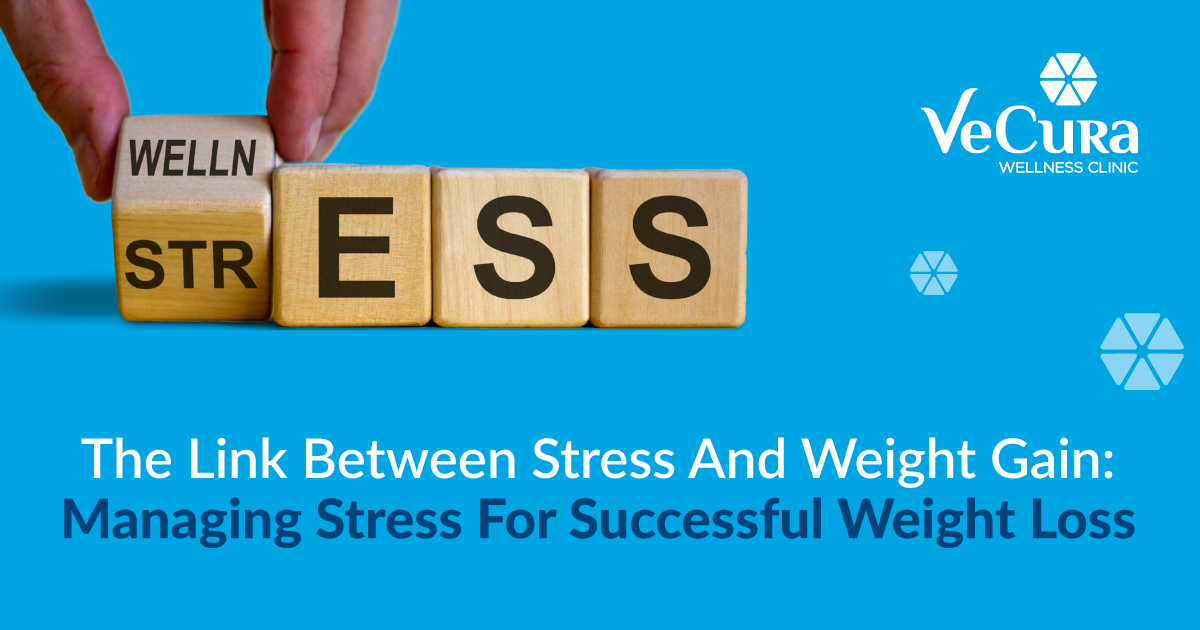A low-carb diet can do a lot of things to your body. It can help you lose weight, boost your metabolism, and even lower your risk of heart disease! If you are looking to shift to a low-carb diet, this blog will help you learn a lot about its benefits and potential risks. Keep reading to know more!
Are you tired of feeling sluggish and bloated? Have you tried every diet out there without seeing any results? Look no further! A low-carb diet might be the perfect metabolism booster you need.
Not only does it help you shed unwanted pounds, but it can also improve your overall health. By limiting your intake of carbohydrates, your body is forced to burn fat for energy, leading to increased energy levels and better blood sugar control.
In this blog, we will explore the many benefits of a low carb diet and why it is the perfect choice for you. Get ready to rev up your metabolism and feel better than ever!
How Can A Low Carb Diet Boost Metabolism?
Metabolism is the process by which your body converts food into energy. It is a complicated process involving numerous metabolic events, enzymes, and hormones. Several factors, including genetics, age, gender, and lifestyle, influence your metabolism.
Carbohydrates are one of the three macronutrients required by your body for energy. When you consume carbs, your body converts them into glucose, which is used as an energy source. On the other hand, consuming too many carbohydrates might result in excess glucose in the blood, causing your body to store the excess glucose as fat.
A low-carb diet, on the other hand, restricts carbohydrate intake while increasing protein and fat intake. Reduce your carbohydrate intake to lower the quantity of glucose in your blood, resulting in weight loss and increased insulin sensitivity.
One reason why a low-carb diet can boost metabolism is that it causes your body to rely on fat for energy instead of carbohydrates. This process, called ketosis, can result in enhanced fat-burning and weight reduction.
A low-carb diet can also help manage hormones that influence metabolism, such as insulin and leptin. Insulin is a hormone that regulates blood sugar levels, whereas leptin is a hormone that affects appetite and metabolism.
Overall, a low-carb diet can be an effective tool for boosting metabolism and promoting weight loss. However, it is important to note that the benefits of a low-carb diet may vary depending on individual factors.
5 Benefits of a Low Carb Diet
A low-carb diet has gained popularity in recent years due to its potential benefits for weight loss, improved blood sugar control, and other health benefits.
Here are some of the benefits of eating a low carb diet
1. Weight Loss
Undoubtedly, weight loss is one of the main advantages of a low-carb diet. When you eat fewer carbohydrates, your body uses stored fat for energy rather than glucose, reducing weight. According to studies, people on low-carb diets lose more weight than those on low-fat diets.

2. Improved Blood Sugar Control
A low-carbohydrate diet can help stabilize blood sugar levels, especially in people with type 2 diabetes. Blood sugar levels remain more steady when carbs are reduced, lowering the need for insulin and other diabetic treatments.
3. Lower Risk Of Heart Diseases
Low-carb diets can help reduce the risk of heart disease by lowering bad cholesterol (LDL) and increasing good cholesterol (HDL). This diet also helps reduce triglyceride levels, which is another risk factor for heart disease.
4. Improved Mental Clarity
Some research suggests that a low-carb diet may improve cognitive function and lower the risk of dementia, Alzheimer’s, and other mental disorders. When carbohydrates are scarce, the brain can use ketones as fuel to improve cognitive function.
5. Better Digestive Health
A low-carb diet can improve digestive health by reducing bloating, gas, and other digestive issues. This diet eliminates processed foods and refined sugars, which can cause digestive problems.
Though a low-carb diet has numerous benefits, you should consult a healthcare provider before starting any new diet, particularly if you have any underlying medical conditions.
Tips: Also check the How Can A Vegan Diet Help You Lose Weight?
5 Tips To Implement A Low-Carb Diet
Implementing a low-carb diet can be challenging, especially for those who are used to consuming high-carb foods. But this can become easier in the long run with a few tips!
1. Plan Your Meals

This gives you a good idea of what you’ll eat and how much you’ll need to buy. You can make a weekly meal plan to make sure you receive enough low-carb items like veggies, protein-rich foods, and healthy fats.
2. Avoid Processed Foods
Because processed foods are frequently high in carbs and sweets, they are unsuitable for a low-carb diet. Consume whole foods like vegetables, fruits, nuts, and seeds. Consumption of processed meats such as sausages and bacon should also be limited.
3. Stock Up On Low-Carb Foods
Load up on protein-rich foods, including meat, chicken, fish, veggies, nuts, and seeds. Besides that, include healthy fats like olive oil, coconut oil, and avocado oil. This prevents you from resorting to high-carb foods when you’re hungry and have nothing to eat.
4. Read Food Labels
Be aware of hidden carbs like sugars and artificial sweeteners, which can quickly add up. It’s also worth noting that some “low-fat” foods might be heavy in carbohydrates.
5. Stay Hydrated
Consuming plenty of water improves digestion and helps remove toxins from the body. Water can also help you feel full and avoid snacking on high-carb foods.

Tips: Also check the What is Body Contouring? Types and Their Benefits
Potential Risks and Side-Effects
While a low-carb diet may be effective for weight loss and controlling blood sugar levels in some individuals, there are potential risks and side effects to consider.
One of the potential dangers of a low-carb diet is an increase in saturated fat intake, which can lead to elevated cholesterol levels and an increased risk of heart disease. Another danger is nutrient deficiency, as some critical vitamins and minerals are largely found in carbohydrate-rich diets, including fruits, vegetables, and whole grains.
In addition to constipation and headaches, low-carb diets may cause fatigue and bad breath, commonly called keto breath. These side effects may disappear as the body adjusts to the new diet.
Additionally, a low-carb diet may not be suitable for all people, such as those with certain medical conditions, including kidney or liver disease, and pregnant and nursing women.
In conclusion, while a low-carb diet may be effective for some individuals, it is important to consider the potential risks and side effects and consult a healthcare provider before making any significant changes to your diet.
Looking To Lose Weight Through Diets? Visit VeCura Wellness For An Easier Way!
A lot of people resort to vigorous exercise and extreme diets to lose weight. Though they can help to a certain extent, they are not permanent solutions to your weight loss problems.
VeCura Wellness is a weight loss clinic in Chennai that can help you lose weight safely and healthily. VeCura Wellness’s weight loss experts provide completely customized solutions that best suit your lifestyle and weight loss needs.
1. Chennai
- T Nagar
- Anna Nagar
- OMR
- Porur
2. Trichy
3. Coimbatore
4. Salem
5. Madurai
6. Erode
7. Vellore
8. Hyderabad
- Malakpet
- Jubilee Hills
- A.S.Rao Nagar
9. Andhra Pradesh
- Vijayawada
- Visakhapatnam
- Tirupati
10. Telangana
- Medipally
- Kukatpally
11. Pondicherry
Our wellness experts can help you with anything from body contouring to tummy reduction!
Conclusion
In conclusion, a low-carb diet can be a game-changer for those seeking to boost their metabolism and achieve their health and fitness goals.
Reducing your carb intake and focusing on healthy fats and proteins can kickstart your body’s fat-burning abilities, regulate blood sugar levels, and improve overall energy levels. Plus, the benefits don’t stop there.
A low-carb diet has been linked to reduced inflammation, improved cognitive function, and even a lower risk of chronic diseases like diabetes and heart disease. So, if you’re looking to rev up your metabolism and improve your health, it might be time to consider going low-carb.
And don’t forget to consult a doctor or a professional before changing your dietary habits. VeCura Wellness can help you lose weight according to your lifestyle and provide the right information for the best results!
Note: To explore more engaging content and stay connected, feel free to visit VeCura Wellness YouTube channel for exciting videos, insightful discussions, and much more.
Benefits of a Low Carb Diet: Frequently Asked Questions (FAQs)
1. How do carbs affect metabolism?
Carbs affect metabolism by raising blood sugar levels, which triggers the release of insulin, a hormone that can promote fat storage.
2. Are carbs essential for metabolism?
Carbs are important for metabolism as they provide energy for the body to function properly.
3. Will a low-carb diet reduce belly fat?
A low-carb diet can help reduce belly fat as it can reduce overall body fat, including in the abdominal area.










0 Comments